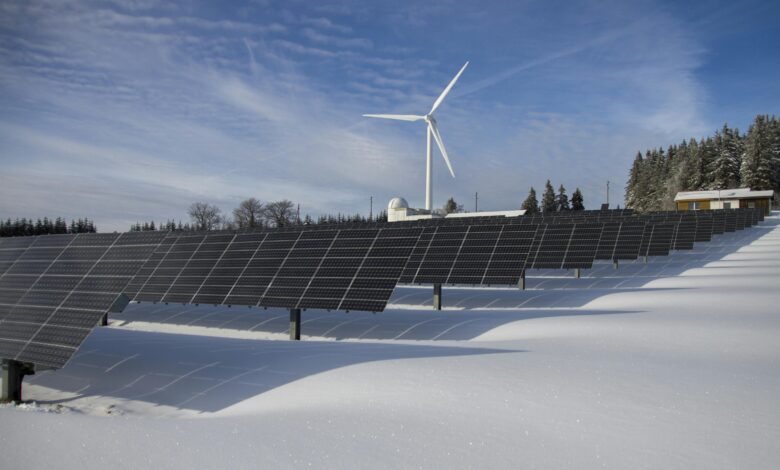How Solar Power Can Reduce Your Energy Costs

The increasing fascination with renewable energy is prompting both homeowners and businesses to view solar power as an effective means to cut energy expenses. Given the city’s advantageous climate and the state’s encouraging policies, exploring solar energy becomes an enticing option for those aiming to minimize their environmental impact and lower their utility costs. This blog post explores how solar power can offer substantial savings, backed by local initiatives and technological strides in solar energy.
Harnessing Solar Potential
By adopting solar panel installations, homeowners and businesses can harness the plentiful solar energy, transforming it into electricity. This shift not only diminishes their dependence on the conventional power grid but also significantly cuts down on energy expenses.
Initial Investment vs. Long-Term Savings
Although the upfront cost of installing solar panels is considerable, the enduring reduction in energy expenses renders it a valuable investment. The affordability of solar solutions is on the rise, driven by the declining prices of solar technology, state incentives, and federal tax credits. As time progresses, the decrease in utility bills compensates for the initial outlay, resulting in significant overall savings.
Incentives and Rebates
Residents can take advantage of a range of state and federal incentives to significantly lower the costs associated with transitioning to solar energy. These incentives encompass tax credits, rebates, and Solar Renewable Energy Certificates (SRECs), enhancing the financial attractiveness of solar power.
Net Metering
Net metering policies enable owners of solar panels to sell surplus electricity back to the grid, thereby earning credits on their utility bills. This arrangement can result in further savings and expedite the return on investment for solar panel installations.
Increased Property Value
Properties equipped with solar installations frequently experience a boost in value. Considered on par with high-value upgrades such as modernized kitchens or fully finished basements, solar panels enhance a property’s appeal to potential buyers, often resulting in elevated selling prices.
Solar Leasing and Power Purchase Agreements (PPAs)
For individuals concerned about the initial investment in solar panels, alternatives such as solar leasing and Power Purchase Agreements (PPAs) provide a viable solution. These options enable homeowners to harness solar energy without the need to purchase the panels directly. Instead, they pay a predetermined rate for the electricity produced, which typically falls below the standard utility rate.
Energy Independence
Solar power enhances energy independence, mitigating the impact of escalating energy prices and potential supply interruptions. By producing their own electricity, residents benefit from stable energy costs, shielded from the fluctuations characteristic of conventional energy markets.
Environmental Impact
Beyond economic advantages, solar power plays a pivotal role in diminishing greenhouse gas emissions and pollution, fostering a cleaner and healthier environment. Opting for solar energy, individuals contribute significantly to the fight against climate change and the advancement of sustainable energy solutions.
The Role of Solar Companies
Solar enterprises play a pivotal role in the shift towards solar energy, providing specialized guidance, installation expertise, and continuous support to maximize the efficiency and effectiveness of solar systems. Choosing a solar provider necessitates a thorough evaluation of their experience, reputation, as well as the excellence of their products and services.
Future of Solar Energy
The outlook for solar energy in Boise is bright, thanks to technological progress that is rendering solar power more efficient and widely accessible. Breakthroughs in the design of solar panels, advancements in battery storage, and improvements in energy management systems are collectively elevating the allure of solar energy. These innovations make it a progressively practical choice for a growing number of residents and businesses.
Conclusion
Solar energy presents a viable and eco-friendly option for cutting energy expenses. Given the city’s conducive climate for solar energy, encouraging policies, and accessible financial incentives, the present moment is ideal for residents to explore solar power. By adopting solar energy, residents will benefit from reduced energy costs, play a significant role in environmental protection, and pave the way for a sustainable and self-sufficient energy landscape.





